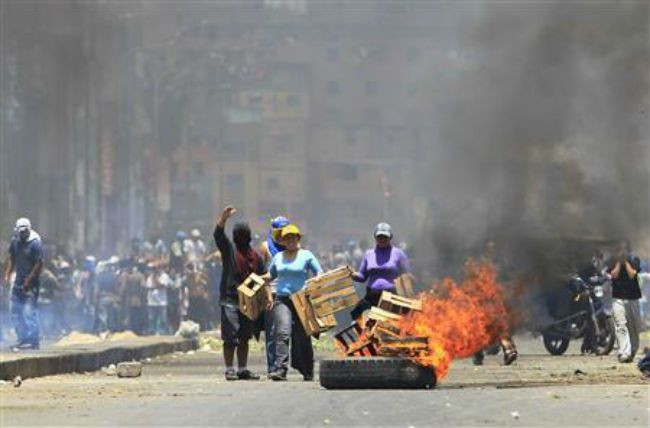
Two people died and 21 others were injured in Peru's capital on Saturday as protesters clashed with police trying to shut down a sprawling wholesale market, raising the death toll to four since street battles erupted at the site on Thursday.
The unrest in Lima's downtown has stunned residents and could hurt Mayor Susana Villaran's chances of winning a recall election in the chaotic city of 8 million. The date of the vote has not been set, but must occur within 40 days.
The skirmishes have also prompted criticism of President Ollanta Humala's interior minister, who is in charge of the police force that was caught off guard when protests broke out on Thursday. Two people were killed and dozens injured in those clashes.
Humala campaigned on promises to use mediation to defuse widespread social conflicts, but 23 people have died in confrontations with police since he took office in July 2011 - mostly in remote provinces.
Villaran, a reformer, wants to move the wholesale market - known as an easy place to buy contraband and stolen merchandise - to a modern facility she has built just a few blocks away.
She accused merchants opposed to the move of hiring criminals to brawl with police, paying them just 30 soles ($11.50) a day to throw rocks and clubs at riot police, who responded with tear gas, batons and pistols.
"Today, all the real merchants who don't rely on criminals have said they want to move to the new market," Villaran said on RPP radio. "We are regaining order and security in an area that has only been one of disorder, chaos, insecurity and filth."
Lima has been hit by a series of strikes over the past month as unions demand better pay and complain of being left behind by a decade of growth that saw the economy surge more than 6 percent a year.
Transport workers opposed to Villaran's push to overhaul Lima's bus system have gone on strike, while Humala struggled for weeks before persuading the national teachers' union and doctors in the country's public health system to end walkouts that shut schools and hospitals.
© Thomson Reuters.




